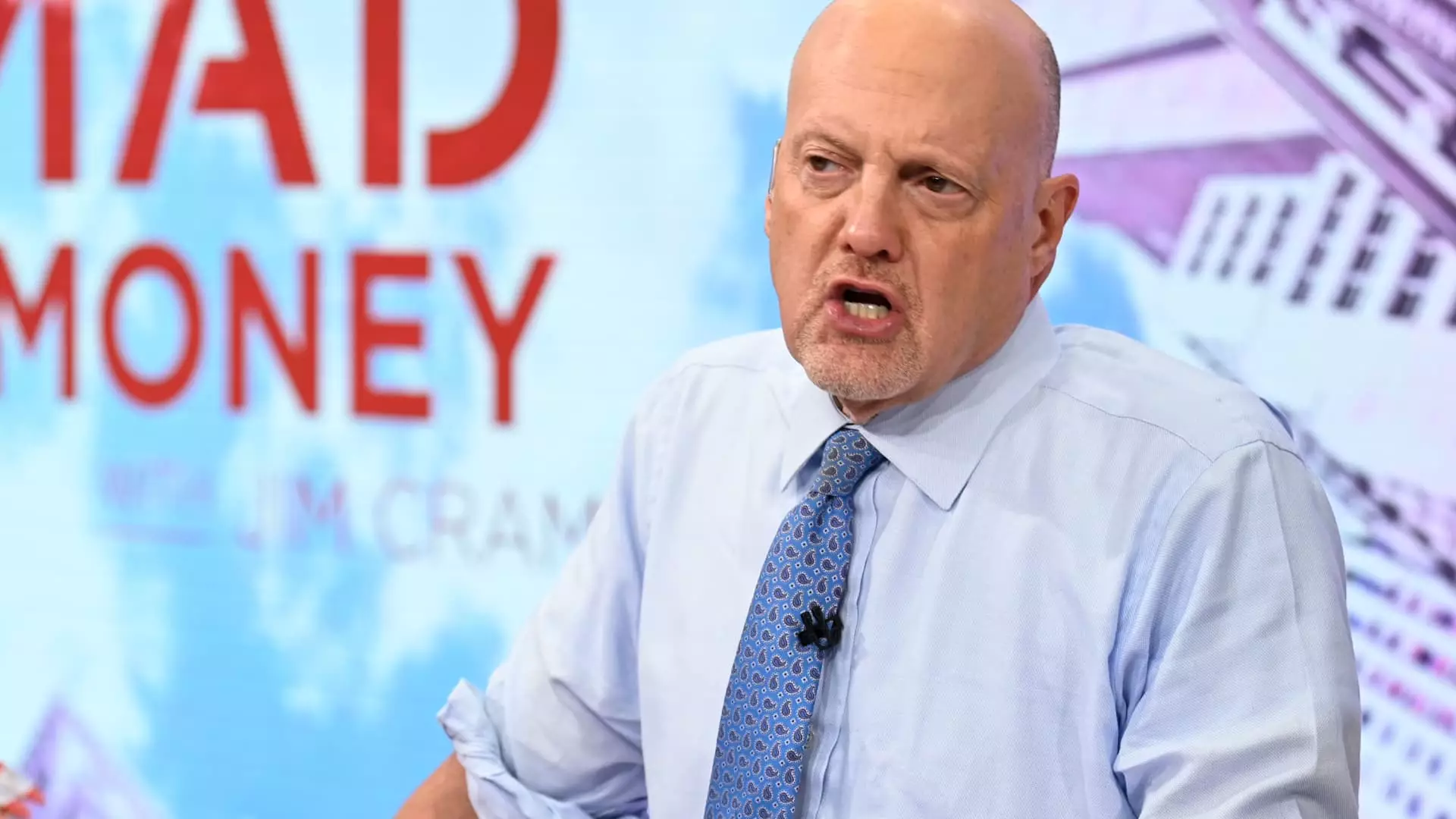In a striking turn of events, President Donald Trump’s imposition of new tariffs has sent shockwaves through global stock markets, triggering fears of a dire economic tumult reminiscent of past recessions. As investors brace for yet another week of earnings reports, the sentiment is mixed, with skepticism clouding the outlook. The upcoming disclosures by big banks will not only serve as a barometer for corporate health, but they will also reveal how deeply intertwined the financial futures of these institutions are with the disruptive policies emanating from the White House.
Market Reactions and Their Implications
Jim Cramer’s analysis paints a grim picture, inferring that the market’s trajectory hinges largely on Trump’s upcoming decisions. The unsettling reality is that, irrespective of what these earnings reports unveil, the unwavering uncertainty steered by tariff policies could trigger more chaos. Should Trump choose to maintain his obstinacy, complacency might lead us down a path reminiscent of Black Monday in 1987—a day when the stock market tanked due to unmitigated fear and panic.
With every tick of the market, the potential for an economic downturn looms larger. The immediate implications of tariffs on industries like retail and pharmaceuticals bring forth a looming crisis. Levi Strauss, for instance, stands at a precipice, vulnerable to fluctuations in international trade, particularly impacting its operations in countries such as Japan and Mexico. Previous earnings troubles signal that unless something shifts, the denim giant may find itself embroiled in further financial woes.
A Broader Economic Assessment
The report from drugstore chain Walgreens following its announcement of a sizable privatization deal offers a complex mix of optimism and concern. While the company is poised to negotiate new territory, it must navigate turbulent waters brought on by heightened tariffs affecting its supply chain and pricing. The market anticipates that Walgreens’ performance could either bolster or hamper confidence in retail-sector resilience.
This week’s earnings from Delta Air Lines further intersect with consumer behavior in travel, which remains fragile. After slashing its outlook, the airline’s report will be scrutinized not just for revenue, but rather for any indications of travel trajectory in light of speculative economic conditions. Companies like Delta cannot escape the far-reaching implications of tariffs—if costs rise due to imposed duties, consumer travel behavior is likely to shift unfavorably.
Increased Price Pressures and Consumer Behavior
Meanwhile, the ripple effects of rising inflation merit serious consideration. With the Bureau of Labor Statistics poised to unveil the consumer price index, a disturbing trend is emerging—one that suggests inflation has become entrenched (“sticky”). Trump’s tariffs only exacerbate this reality, creating a vicious cycle that pressures prices even higher. This places the Federal Reserve in a particularly challenging position, as it weighs the option of interest rate cuts against the backdrop of mounting price pressures influenced by executive policies. Such indecision could stymie market confidence even further.
CarMax, a used-vehicle retailer, faces an ironic twist; tariff impacts on new cars could potentially enhance used-vehicle demand. However, against the backdrop of looming recession fears, its stock may not find favor. The interplay of tariffs, interest rates, and consumer spending creates an unpredictable scenario that could redefine the market landscape.
The Long Road Ahead for Investors
As the week culminates in reports from financial giants like JPMorgan Chase, Morgan Stanley, and Wells Fargo, the overarching theme remains clear—tariffs have engendered a climate of doubt that could overshadow any positive earnings surprises. These financial leaders may post solid results, yet the broader economic uncertainties prompted by reckless trade policies warn against unbridled optimism.
What should be troubling for investors is the insight that, while a bull market promises profit, a bear market fuels anxiety. Trump’s decisions could either catalyze a revival or plunge us deeper into despair. The hope that the President might pivot to favor more cooperation over confrontation feels distant in this current climate. As voices from the financial community convey looming unease, the possibility for a stable recovery hinges precariously on leadership foresight—something desperately needed as we navigate these tempestuous economic waters.

